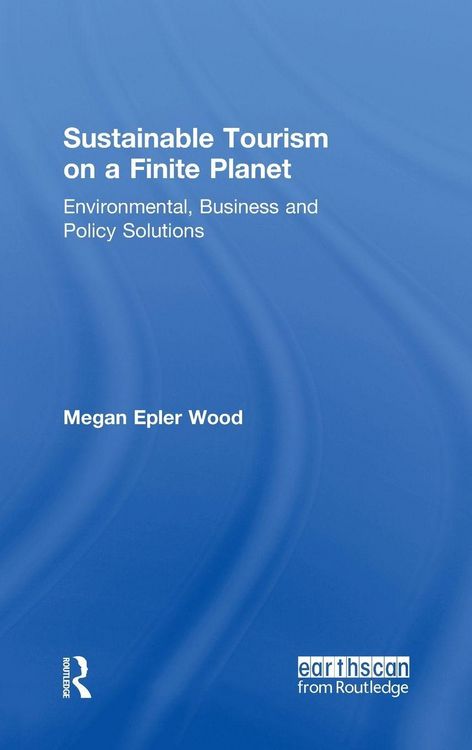Sustainable Tourism on a Finite Planet Environmental, Business and Policy Solutions
-
- Hardcover ausgewählt
- Taschenbuch
- eBook
-
Sprache:Englisch
272,99 €
inkl. MwSt,
Lieferung nach Hause
Beschreibung
Details
Einband
Gebundene Ausgabe
Erscheinungsdatum
06.02.2017
Verlag
Taylor and FrancisSeitenzahl
328
Maße (L/B/H)
24/16,1/2,3 cm
Gewicht
780 g
Sprache
Englisch
ISBN
978-1-138-21758-4
This book helps all those involved in international tourism develop the new skills, tools and investments required to protect irreplaceable global resources from the impacts of escalating tourism demand over the next 50 years. It documents how technology and the growing global middle class are driving a travel revolution which requires a new paradigm in managing tourism destinations. Travel and tourism supply chains and business models for hotels, tour operators, cruise lines, airlines and airports are analysed and environmental management techniques are proposed for each sector. A pragmatic set of solutions are offered to support the transition to lower impact tourism development worldwide.
It recommends that decision makers assess the current and future value of natural, social, and cultural capital to guide investment in destinations and protect vital resources. Case studies illustrate why budgets to protect local destinations are consistently underestimated and offer guidance on new metrics. Innovative approaches are proposed to support the transition to green infrastructure, protect incomparable landscapes, and engage local people in the monitoring of vital indicators to protect local resources.
It provides students, professionals, and policy makers with far-reaching recommendations for new educational programs, professional expertise, financing, and legal frameworks to lower tourism’s rapidly escalating carbon impacts and protect the health and well-being of local populations, ecosystems, cultures, and monuments worldwide.
Unsere Kundinnen und Kunden meinen
Verfassen Sie die erste Bewertung zu diesem Artikel
Helfen Sie anderen Kund*innen durch Ihre Meinung
Kurze Frage zu unserer Seite
Vielen Dank für dein Feedback
Wir nutzen dein Feedback, um unsere Produktseiten zu verbessern. Bitte habe Verständnis, dass wir dir keine Rückmeldung geben können. Falls du Kontakt mit uns aufnehmen möchtest, kannst du dich aber gerne an unseren Kund*innenservice wenden.
zum Kundenservice
